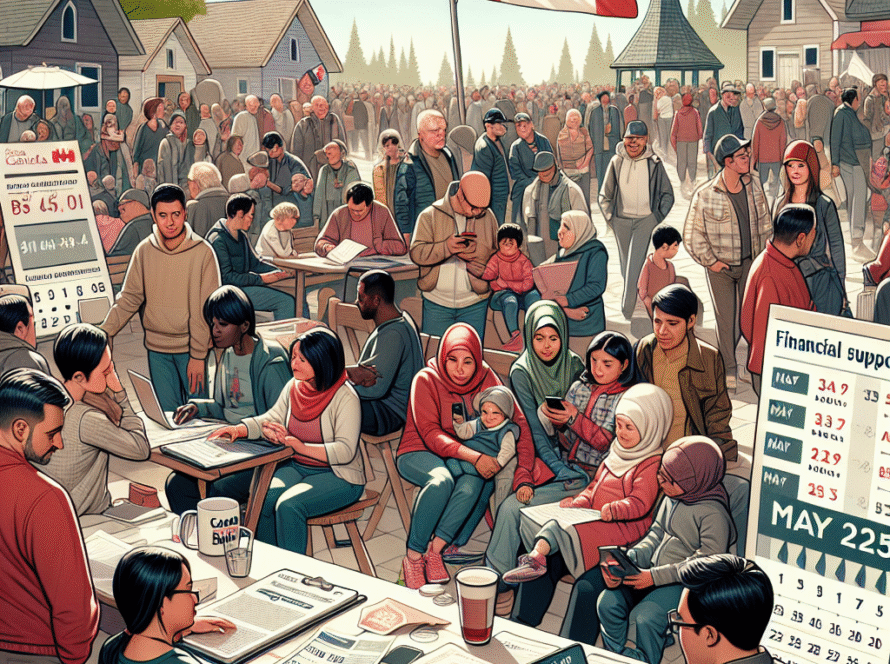Boost Your CRS Score for Canadian PR by Learning French

Unlocking Canadian Dreams: The Rising Importance of French for Permanent Residency Applicants
As Canada faces a surge in immigration applications, securing Permanent Residency (PR) has become an increasingly competitive endeavor. With only 395,000 spots available and over 3 million temporary residents vying for them, international students and workers are seeking every possible advantage. One of the most strategic—and perhaps unexpected—ways to enhance this chance is by learning French, a skill that can dramatically boost an applicant’s Comprehensive Ranking System (CRS) score.
The Shift in Immigration Dynamics
Historically, French proficiency was viewed as a mere bonus in the immigration process. However, recent changes in the Express Entry system have elevated it to a crucial asset. Applicants can earn up to 50 additional CRS points for demonstrating French-language skills, which could be the deciding factor between receiving an invitation to apply for PR or being left behind in the competitive pool.
Several factors amplify the relevance of French in today’s immigration landscape:
-
High CRS Cutoffs: As the demand for PR grows, the scores needed for invitations are progressively rising.
-
Limited Spots: The stark reality is that the number of applicants far exceeds the available PR spots, making it essential to stand out.
-
Category-Based Draws: Recent changes have prioritized Francophone candidates, giving them a distinct advantage in the selection process.
- Increasing Demand for Bilingual Workers: Many Canadian employers are actively seeking bilingual candidates, especially in non-priority sectors like IT and business.
Real-Life Impacts
The story of Harbal Deep Sidhu, a mechanical engineering graduate, exemplifies the shift in strategy. After investing over $40,000 in his education, Sidhu is now channeling additional funds into French language courses to enhance his CRS score. He states, “It’s hard work, but it might be my only path forward.” Similarly, Gurasees Singh, an IT student, acknowledges that mastering French is “the only option that becomes feasible for us” given the current immigration landscape.
Data reveals a significant rise in interest, with some colleges reporting over a 200% increase in French course enrollment. This surge illustrates a broader acknowledgment among international applicants that bilingualism may be crucial for successful immigration.
Expert Insights
Immigration lawyers like Lou Janssen Dangzalan emphasize the importance of French proficiency. He asserts, “It significantly increases your chances, especially if you aim for category-based draws or Francophone pathways.” This aligns with broader trends indicating that bilingualism not only enhances immigration prospects but also opens doors to diverse job opportunities in Canada.
The Long-Term Benefits of Bilingualism
The advantages of learning French extend well beyond the immediate goal of securing PR. Bilingual individuals often find themselves eligible for government positions, research roles, and a variety of jobs where both English and French are essential. Amangel Bhullar, now a Canadian citizen, highlights this trend, stating, “More bilingual jobs are popping up, and I want to be ready.”
How to Get Started with French
As demand for French learning accelerates, many colleges are stepping up to meet this need. Prospective learners can explore various avenues:
- Enroll in certified college programs like those at Boreal College.
- Utilize language learning apps such as Duolingo or Babbel for self-study.
- Join community-based immersion groups for practical experience.
- Hire private tutors for personalized instruction.
Conclusion: French as a Strategic Advantage
In a landscape where every point counts, mastering French is not just an academic exercise; it’s a strategic maneuver for those aiming to secure their future in Canada. As the immigration process becomes more intricate and competitive, embracing bilingualism may well be the key to unlocking the door to permanent residency.
For those serious about their Canadian dream, investing in French language skills may not only enhance their CRS score but also enrich their professional and personal lives in a bilingual nation.



